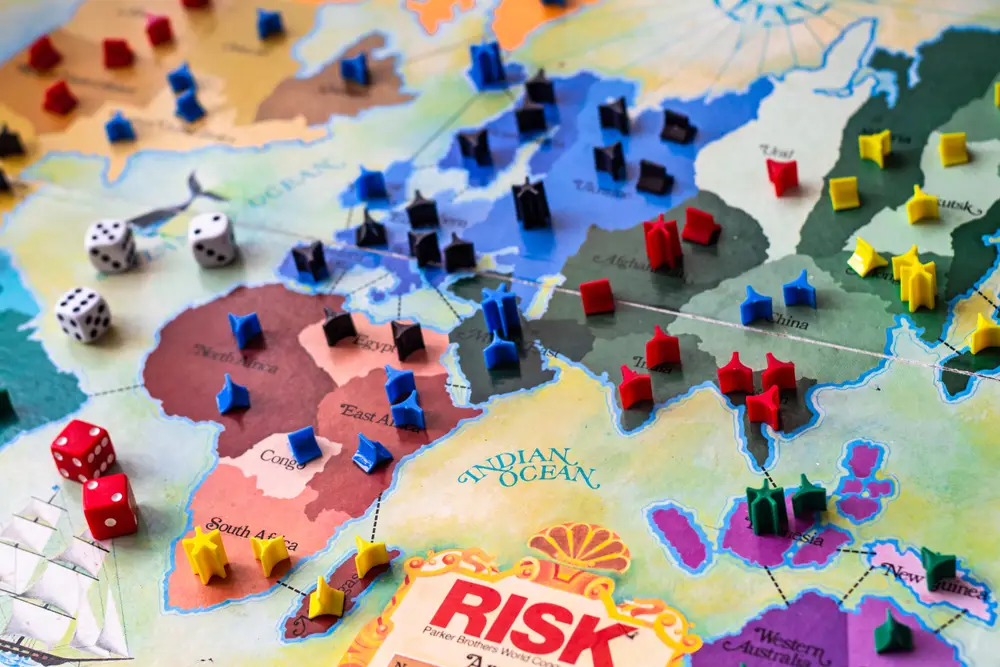With Kalshi’s news that it had raised $300 million and secured a $5 billion valuation, the leading prediction market platform also announced that it would no longer be available only in the United States.
In a press release announcing the funding raise, Kalshi also declared a major global expansion.
“For the first time, Kalshi is available to users around the world under a global model that supports participation from over 140 countries,” the release stated.
While cleared to operate federally under regulatory oversight from the Commodity Futures Trading Commission, Kalshi is currently embroiled in legal action with several U.S. states that feel the platform’s sports event contracts are sports betting, which they say only the states can allow and regulate in their jurisdictions. With Kalshi’s international expansion, those types of legal challenges could very likely play out on a much bigger scale from jurisdictions that view the prediction platform as a facilitator of unsanctioned gambling or in some other way in violation of a country’s laws.
Alun Bowden, the U.K.-based SVP of strategic insights at gaming research and consulting firm Eilers & Krejcik Gaming, wrote on LinkedIn about Kalshi’s expansion and the complex regulatory web that awaits, listing several of the countries the platform is open for business in.
“I am not sure how I would describe a sports betting site that is apparently accepting players from Belgium, Brazil, China, Finland, Germany, Greece, India, Italy, Japan, Mexico, The Netherlands, Norway, Portugal, Spain, South Korea, Sweden and Vietnam from a sole license in its host domicile,” Bowden wrote. “But I think I would probably use a darker shade than white.”
Polymarket, Kalshi restrict U.S.-sanctioned countries
Polymarket, which has operated internationally since launching in 2020, has served as a bit of a canary in a coalmine for Kalshi on the global stage. Polymarket has faced bans and restrictions in several countries over the past few years, including in the U.S., though the platform is set to relaunch in its home country soon. When it does, Kalshi will be its biggest head-to-head competitor.
Polymarket has been able to watch from the sidelines as Kalshi foots the bill and engages in court battles fighting for all prediction markets’ right to offer high-volume-driving sports markets in all 50 states. Now, Kalshi can look at the challenges Polymarket faced on an international level and adapt, which it is attempting to do right out of the gate.
With Kalshi’s announcement that it is going global, the company updated its member agreement to include a list of dozens of countries from which Kalshi users cannot “access, use, or trade.”
The bulk of the countries listed as prohibited at both Polymarket and Kalshi, including Russia, Belarus, Angola, Iraq, Cuba, Syria, and North Korea, are on the list due to various U.S. sanctions on the countries. With both Kalshi and Polymarket being based in the United States, they are generally prohibited from doing business in countries sanctioned by the government.
Both platforms’ user agreements say customers cannot access their sites/apps in “any jurisdiction or territory that is the subject of comprehensive country-wide, territory-wide, or regional economic sanctions imposed by the United States.”
Kalshi avoids most countries that have restricted Polymarket
But several of the countries appear to be on Kalshi’s restricted list due to direct action taken against Polymarket after its platform was made available there.
- According to CoinDesk, Taiwan was the first country to restrict access to Polymarket. The move appears to have come after 17 people were arrested in late 2023 for using the platform to trade on Taiwanese elections, a violation of local law.
- France’s gambling regulatory body was investigating a very large bet on the U.S. presidential election. As the investigation progressed, Polymarket proactively blocked French users from trading on the site in November of 2024. French crypto media outlet The Big Whale reported that France was planning to ban access to Polymarket, according to Bloomberg, suggesting the site was offering illegal betting. But it appears Polymarket kept its own block on in France.
- Singapore’s Gambling Regulatory Authority blocked access to Polymarket in December of 2024, with a spokesperson telling Bloomberg it had determined the platform was offering illegal gambling.
- In early 2025, Bloomberg reported that law enforcement announced its plans to prohibit access to Polymarket in Thailand. Police issued a statement saying it found Polymarket was offering illegal online gambling because it uses crypto for trades. It’s unclear whether a ban was ever enforced or if Polymarket simply added Thailand to its restricted list.
- On Jan. 30, 2025, Belgium’s gambling regulatory body, Kansspelcommissie, added Polymarket to its blacklist of banned gambling sites. Authorities found the platform to be in violation of the Gambling Act of Belgium.
- Poland’s Ministry of Finance also added Polymarket to its official blacklist of illegal gambling websites in early 2025.
- The Australian Communications and Media Authority declared Polymarket an “illegal online gambling site” and banned the platform in that country in August of 2025.
The Swiss Gambling Supervisory Authority added Polymarket to its list of blocked gambling sites in Switzerland in November of 2024. But, for unclear reasons, Switzerland isn’t on the restricted lists of either Polymarket or Kalshi. Colombia gambling regulator Coljuegos just ordered Polymarket blocked in late September but it has yet to be added to either platform’s restricted list.
Kalshi restricts all Canadian users, while Polymarket unavailable in Ontario only
Kalshi lists Canada as being a restricted country, while Polymarket’s terms of use only say that it is restricted in the country’s most populated province, Ontario. In April, Polymarket reached a settlement with the Ontario Securities Commission for failing to comply with a ban on short-term binary options. The settlement agreement included fines and a two-year market ban.
The ban on offering binary options with terms of less than 30 days to retail investors is a national restriction in Canada, which is likely why Kalshi is limiting access to the entire country.
Both prediction platforms list the U.K. as a restricted country, though no formal action against either platform has ever been initiated in that country. The U.K.’s Gambling Commission tightly regulates what they call betting exchanges, which function like prediction markets, with peer-to-peer trading on a wide range of event outcomes, including sports, culture and politics.
Retail broker Robinhood, which partners with Kalshi to offer prediction markets in the U.S., is reportedly exploring facilitating event contracts in the U.K. and E.U. Robinhood vice president JB Mackenzie recently told Bloomberg the company was discussing offering prediction markets with regulatory authorities in the U.K., including the Financial Conduct Authority (which is similar to the Securities and Exchange Commission and CFTC in the U.S.). Polymarket and Kalshi may also be exploring the regulatory landscape to figure out a compliant entry into the U.K.
Kalshi says users in India, China can access platform
Even in the countries not on Kalshi’s restricted list, the company may still face pushback and challenges.
A representative from Kalshi confirmed to Sportico this week that users in China and India are not restricted. As the two most populous countries in the world, it’s easy to see why Kalshi would want them to be a part of their global liquidity pool. But both countries present legal and regulatory challenges that would seem to make operations difficult to sustain.
China has extensive restrictions on online content accessible in the country, using its “Great Firewall” to control the internet. China blocks access to most Western social media and other news and information networks, something Kalshi would certainly qualify as. Also, outside of state-run lotteries, all gambling has been forbidden in China since the Chinese Communist Party took control in 1949.
Kalshi could also have difficulty sustaining its platform in India, which passed the Promotion and Regulation of Online Gaming Bill in August. The bill criminalized most forms of online gambling “to curb addiction, financial ruin and social distress caused by predatory gaming platforms,” the government said in a statement. The new law reportedly does allow for some exceptions, including esports, social gaming, and “educational games,” so perhaps Kalshi has found a loophole.
Kalshi may have let Polymarket lead the way on the international level and learned from some of their missteps. But it doesn’t seem like all of the hurdles have been fully cleared, with more opposition likely looming on the horizon.




























